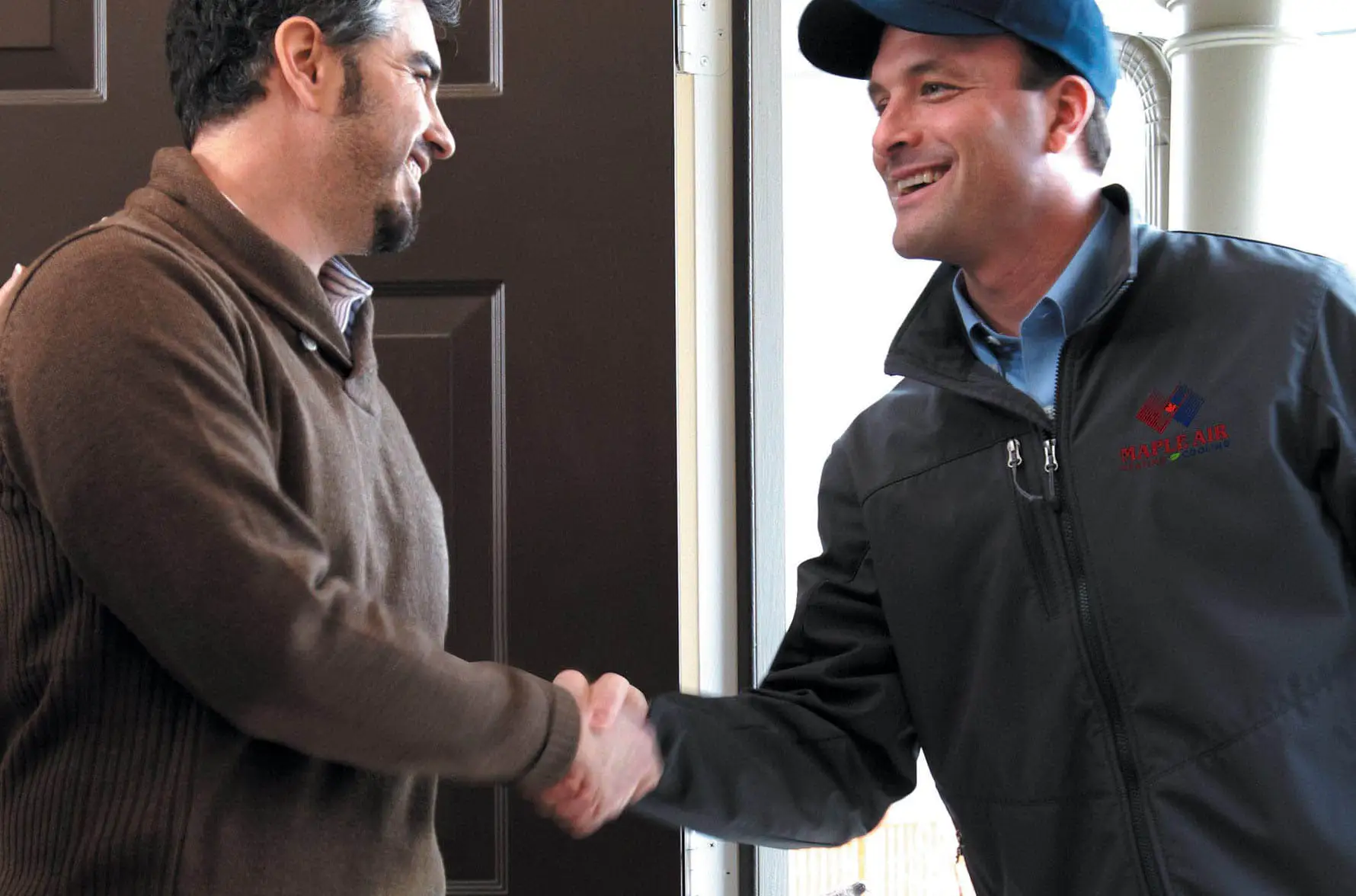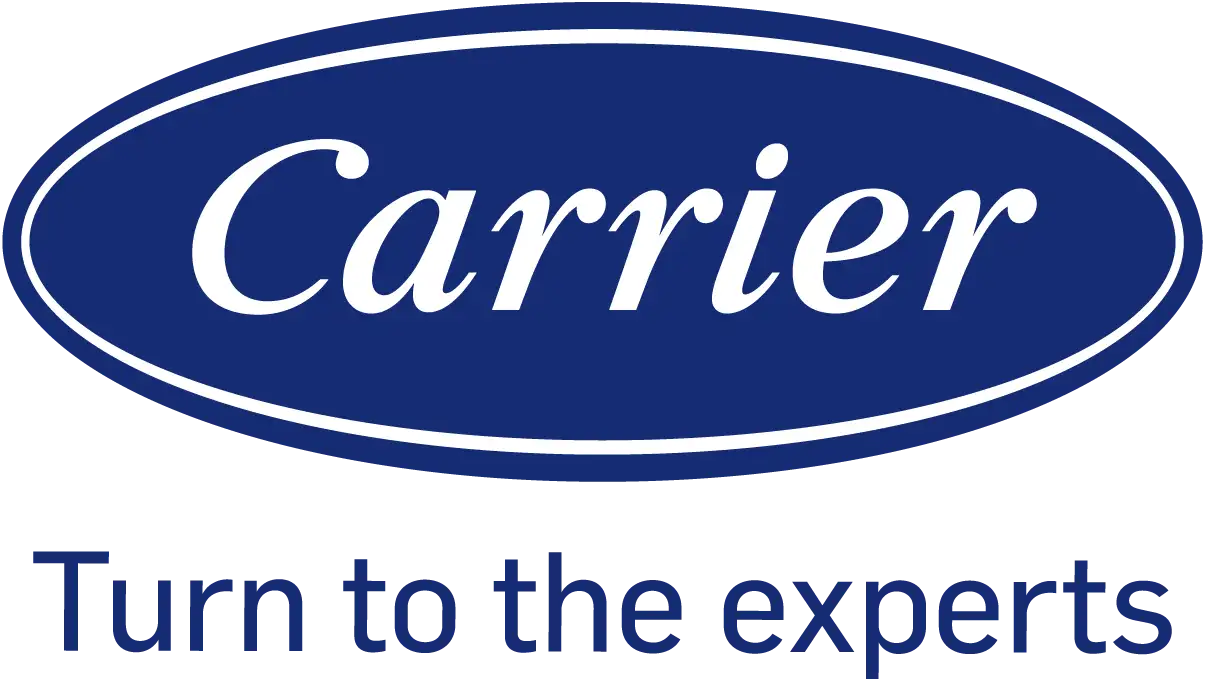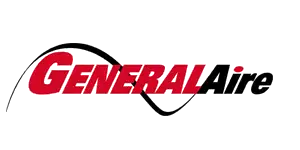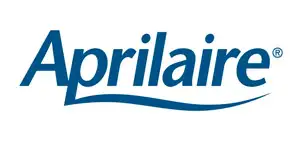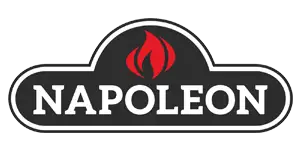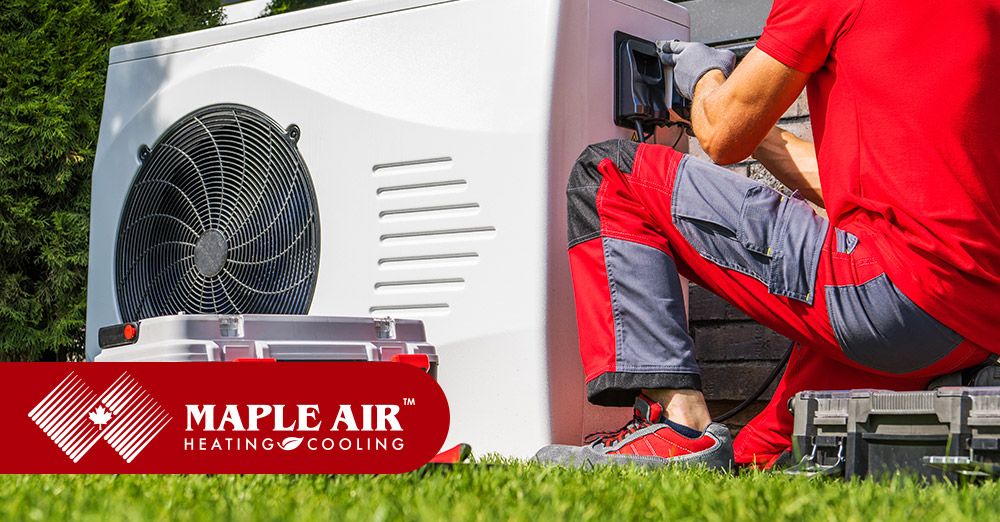
February 15, 2024
As Toronto residents, we understand the importance of having an efficient heating and cooling system to combat the diverse weather conditions we experience throughout the year. One solution gaining popularity in the region is the central heat pump. Today, we'll delve into the fundamentals of heat pumps and address common queries to help you make an informed decision for your home comfort needs.Heat Pump 101: Toronto Edition – Answering Your Most Asked Questions
What is a Central Heat Pump?
A central heat pump serves as a versatile HVAC system capable of both heating and cooling your home by transferring heat between the indoor space and the outdoor environment.
How Does a Central Heat Pump Work?
Central heat pumps extract heat from the air or ground outside your home and transfer it indoors for heating during winter. Conversely, in summer, they reverse the process to cool your home efficiently.
Are Central Heat Pumps Energy Efficient?
Yes, central heat pumps are renowned for their energy efficiency, providing more heating or cooling power than the electricity they consume.
Air Source vs. Ground Source Heat Pumps: What's the Difference?
Air source heat pumps extract heat from outdoor air, while ground source pumps draw heat from the ground. Ground source pumps are often more efficient but may entail higher installation costs.
Can a Heat Pump Replace an Air Conditioner?
Indeed, a heat pump can serve as a viable replacement for an air conditioner, offering both cooling and heating functions throughout the year.
What is the Lifespan and Required Maintenance of Central Heat Pumps?
Central heat pumps typically last 10 to 20 years with proper maintenance, which includes regular filter replacements, monitoring refrigerant levels, and annual professional check-ups.
Cold Climate Adaptability
While traditionally effective in moderate climates, advancements in technology have made cold climate heat pump systems suitable for harsh winters, ensuring reliable operation even in temperatures as low as -30 degrees Celsius.
Do Central Heat Pumps Require a Backup Heating Source in Cold Climates?
In extremely cold climates, some central heat pump systems may benefit from a backup heating source, such as electric resistance heating, to ensure optimal performance.
Why do Central Heat Pumps Produce Condensation Cutside in Winter, and What is the Role of the Defrost Cycle?
During winter, central heat pumps may exhibit condensation outside due to the defrost cycle. As the heat pump extracts heat from cold outdoor air, moisture in the air condenses on the outdoor coil, forming frost. The defrost cycle briefly reverses the operation, melting the frost and causing condensation outside the unit. This is a normal part of the heat pump's operation in cold weather.
Do Central Heat Pumps Work well in Humid Climates?
Yes, central heat pumps can effectively dehumidify indoor air during the cooling season, contributing to a more comfortable indoor environment.
Why is there Noise or Vibrations from a Heat Pump Inside the House?
The construction of the house can affect how much heat pump noise and vibrations are felt indoors. Factors such as building materials, insulation quality, and structural integrity can influence the transmission of sound and vibrations within the house.
Can Central Heat Pumps be Used in Conjunction with other Heating Systems?
Certainly, central heat pumps provide a flexible solution that can be seamlessly integrated with different heating systems. They are compatible with furnaces for a hybrid heating and cooling configuration, can serve as a ductless heat pump solution, and also work effectively with air handler/fancoil systems, supplemented by an auxiliary heater for enhanced flexibility and efficiency.
Can Central Heat Pumps be Controlled Remotely?
Many modern central heat pumps come with smart features, allowing remote control through mobile apps or home automation systems for added convenience.
Do Central Heat Pumps Come with Warranties?
Indeed, central heat pumps typically offer a 10-year parts warranty from the manufacturer and a 1-year workmanship labor warranty. It's important to carefully review the warranty terms and ensure proper registration to activate both aspects of coverage. For an extended labor warranty, consider enrolling in Maple Care, our maintenance and protection plan, which provides an additional 10-year labor warranty from Maple Air.
What Influences the Heating Effectiveness of Central Heat Pumps in Homes?
The efficiency of central heat pumps in homes varies due to factors such as insulation quality, air sealing, window conditions, and overall energy efficiency. Optimal conditions involve well-insulated homes with sealed windows, efficient ductwork, and consideration of home size, layout, thermostat usage, and local climate. Regular maintenance, including air filter inspection and replacement, is essential for sustained efficiency.
Can I Install a Central Heat Pump if I Already have Ductwork for a Furnace?
Yes, if your home has existing ductwork, a ducted central heat pump can often be installed as a replacement for or alongside a traditional furnace.
What are the reasons for elevating heat pumps off the ground, and what advantages does this practice offer in terms of drainage, snow prevention, air circulation, debris protection, and maintenance accessibility?
Heat pumps are often elevated off the ground for several reasons. This practice helps with drainage, preventing water accumulation, especially in rainy or snowy conditions. Elevating the unit also prevents snow buildup, promotes better air circulation, protects against debris, and facilitates easier maintenance access for technicians. This is typically done by placing the heat pump on a concrete pad or platform designed to support its weight. Following manufacturer recommendations and consulting with HVAC professionals ensures proper installation and adherence to guidelines.
What Incentives and Financing Options are Available for Heat Pumps?
Ontario residents who have completed their first audit can take advantage of the Home Efficiency Rebate Plus (HER+) program, offering substantial benefits for heat pump installations. Additionally, Maple Air provides tailored financing options to make installations accessible for homeowners.
Who Should Install a Heat Pump?
Professional installation is paramount for central heat pumps to ensure efficiency and safety. Elevating the unit off the ground aids in drainage, snow management, air circulation, debris protection, and maintenance accessibility.As you consider upgrading your home comfort system, remember that a central heat pump offers versatile and energy-efficient heating and cooling solutions. With proper maintenance and professional installation, it can provide reliable performance for years to come. Contact Maple Air to explore your options further and take advantage of our expertise in ensuring your home remains comfortable in every season.
By addressing these FAQs, we hope to equip you with the necessary knowledge to make an informed decision regarding central heat pumps for your Toronto home. For additional information or FAQs regarding heat pumps, visit our heat pump website page. For any questions or inquiries, give us a call today.
